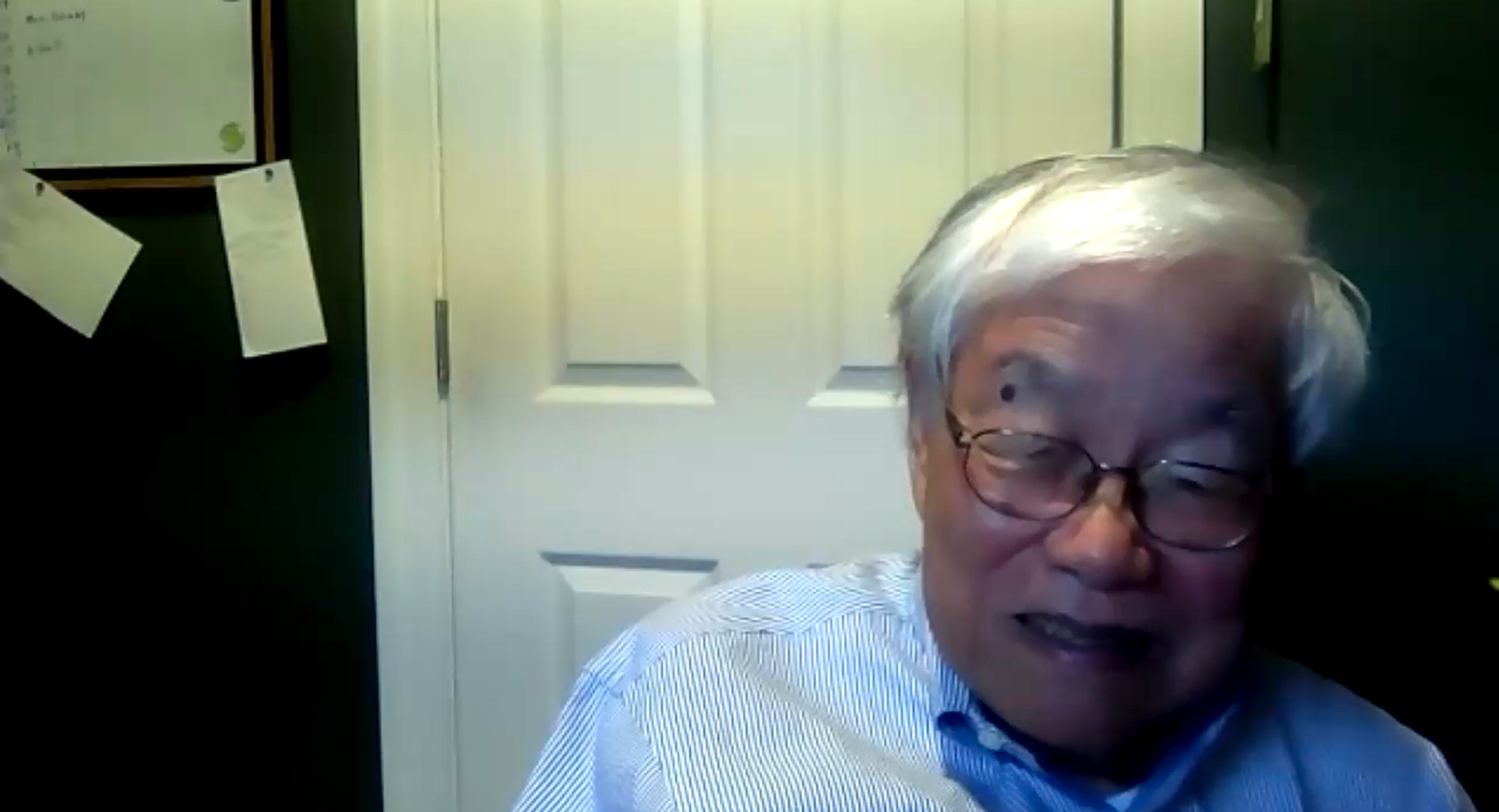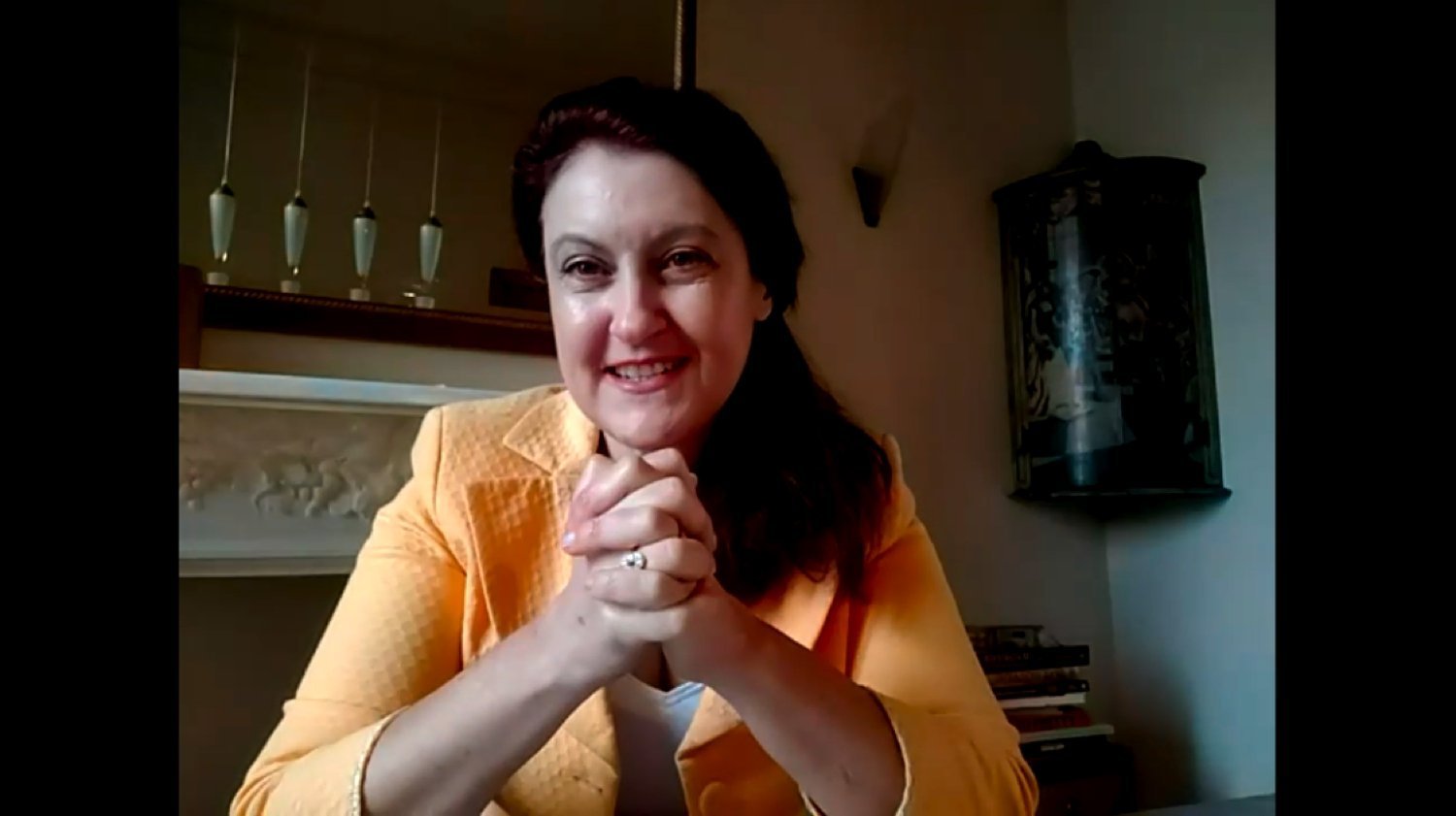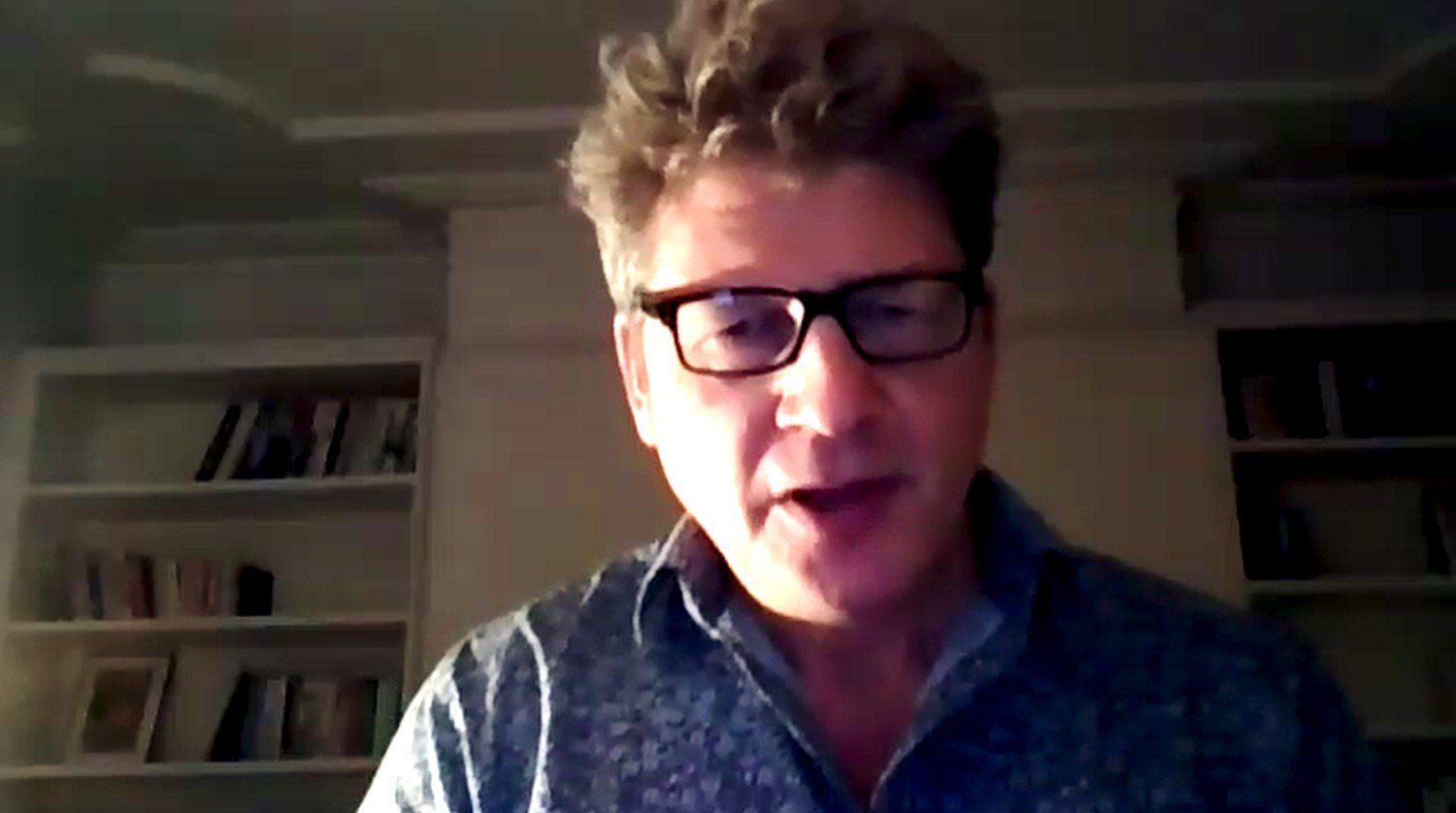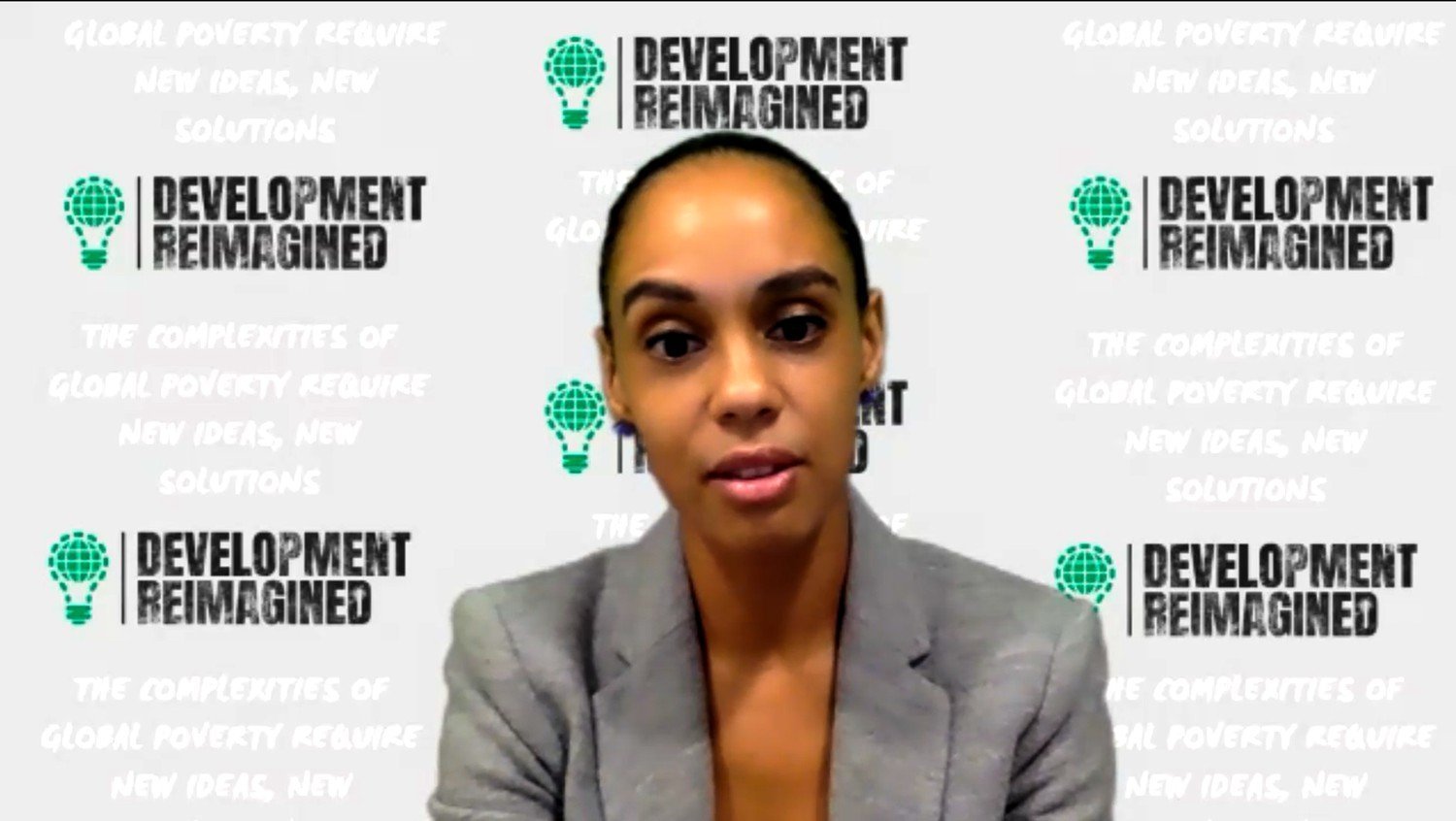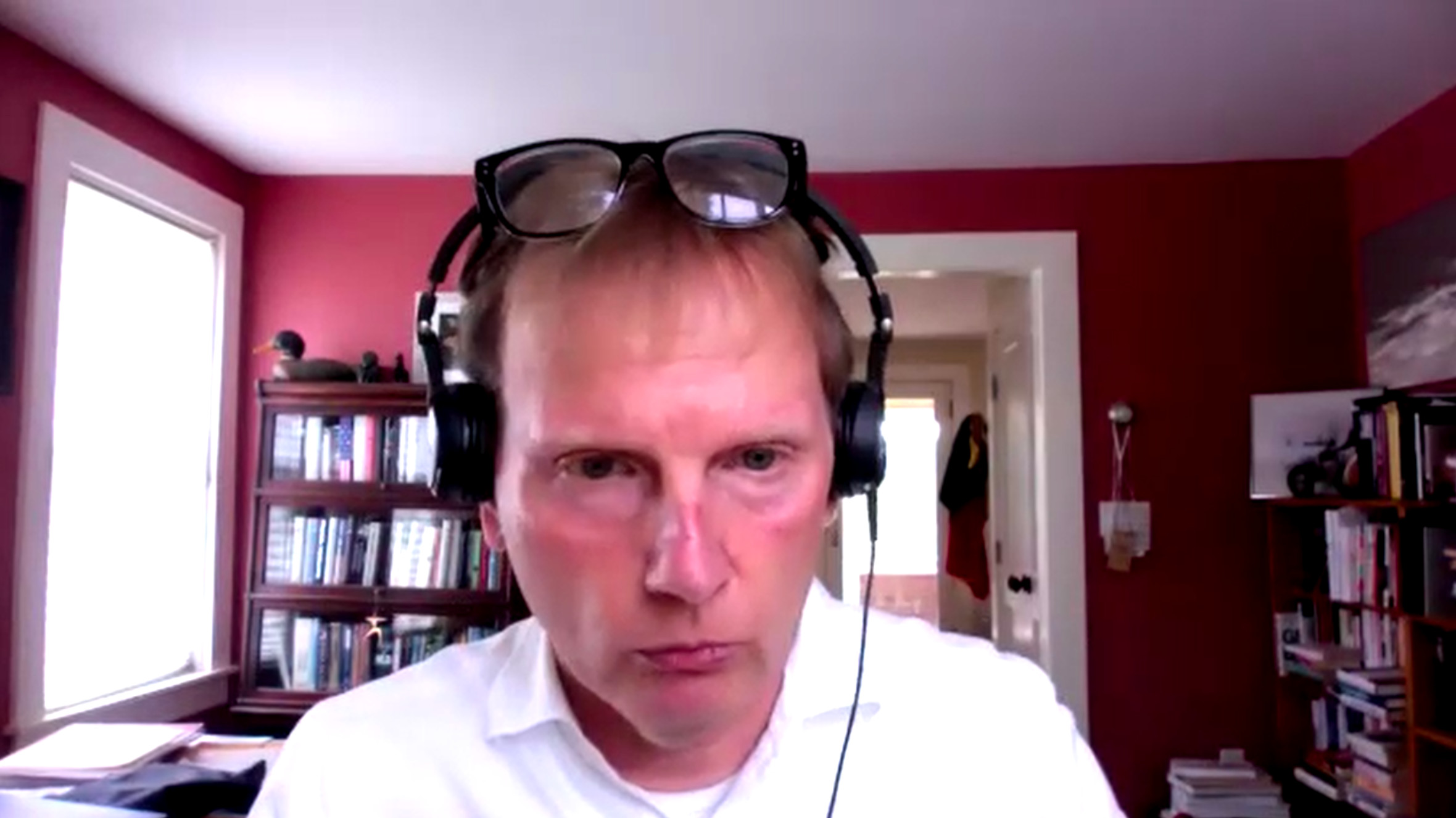Jayati Ghosh
Indian. Development economist, author, Professor of Economics at the University of Massachusetts at Amherst
1. Why does economics matter?
Economics is fundamental to everyone’s lives. It matters hugely. I think one of the big problems in the world has been that economics has been treated as this very technical thing, which is out of the reach of ordinary people. And that’s terrible, because the impact of economic processes and economic policies is so significant on everyone’s lives that it’s too important to be left to economists.
Unfortunately, what has happened is that economics, the mainstream discipline, has tried to create this very sort of technical superstructure which scares people off. And then they are told that there are these iron laws that operate and nobody else can understand them—so whatever happens has to happen, there’s no alternative to this, you have to accept it. That’s very wrong, because, in fact, most economic decisions are deeply political and they reflect relative power and they have very different implications for different segments in society. So economics matters hugely. It’s very unfortunate that most ordinary citizens are not given that basic grounding, which will allow them to call the bluff when necessary.
2. What are the differences between economic science (academic economics) and economic engineering (policymaking)?
One of the reasons why economics is so important is precisely this, that it affects so many people’s lives directly and indirectly through economic policies. It is one of the important areas in which economics is presented as a science, when it’s not. It’s a social science, which means it’s inherently subjective. All of the economic models have with them significant assumptions, many of which are often unrealistic. And yet the results of those models are then used to justify particular policies which are imposed on economies.
So there’s a very substantial difference between the study of economics and the ways in which economic engineering, as you describe it, the policies that are then presented to people, are done. Let me just give you one example. So much of the developing world’s trade and industrial policies are driven by what are called the principles of comparative advantage. And these are taken for granted as part of the iconic knowledge within economics, as obviously true and these have to be implemented—which means countries must invest in the areas in which they have comparative advantage.
This ignores the fact that the theory of comparative advantage, including the Heckscher-Ohlin factor endowment theory, as it’s called, is based on a set of very, very simplifying and wrong assumptions, wrong in the sense that they are not relevant to the modern world: for example, perfect competition; for example, constant attempts to scale, which means there are no scale economies. Now, once you do that and you say you have to invest in the areas in which you have your comparative advantage today, you are condemning countries to stay at that low level of development, not to get into areas with increasing returns to scale. They also assume full employment, which we know doesn’t exist in the world today.
The minute you drop all those assumptions, the results of those models collapse. Yet policymakers use those models in situations where they are completely not valid. The countries that have been successful, when you think about it in trade terms, are the countries that have ignored that advice coming from those economic models. Japan, Korea, China today, they all ignored that advice. And it’s only when you actually recognize that the model is based on these assumptions, so let’s check whether those assumptions hold or are reality and let’s then think of other arguments that may hold better for our reality: it’s only then that you can actually do economic engineering that is beneficial for the greater majority of the people.
3. What role does economics play in society? Does it serve the common good?
I think there is a very different role that economics can play for the common good compared to what it does. But here, I think it’s also important to recognize that what we have today in mainstream economics is only one tradition of economics, that there has been a very long and rich alternative tradition which is typically ignored, which is not taught in most schools, colleges and universities, which is not promoted in research, which is not allowed into institutions, research institutions and policymaking.
I’m referring to a tradition, (certainly there is a long tradition if you look at the Asian traditions and so on) but even in Europe, think of Giovanni Botero, Antonio Serra. These are people who talked about increasing returns from the very beginning who recognized why some cities in Italy did better than others, why northern Europe does better than southern Europe. These are obvious questions in development. And when you think about those, when you bring in economies of scale, synergies, innovation, what enables innovation in certain periods, then you recognize that a lot of these things can actually have a very important bearing today in developing countries.
Currently, I do not believe mainstream economics does. It seeks to justify a status quo and it seems to perpetuate the power of capital over labor very, very broadly.
So it matters for people how we understand how economic processes have played out. It’s very, very important for everyone to know this and it’s important to use those insights. Those are not the insights that we are given from mainstream economics today. We are given a very static, I would say moribund approach, which does not enable us to recognize the dynamisms and to take the advantage of those dynamisms, which does not emphasize the inequalities that certain processes bring about and how you could rectify those or remedy those.
So I would argue that economics can still play a huge role, a positive role. Currently, I do not believe mainstream economics does. It seeks to justify a status quo and it seems to perpetuate the power of capital over labor, very, very broadly—let’s call a spade a spade. Whereas there is a long and rich tradition of much more pluralist economics, which does provide us important insights that could benefit the common good.
4. Economics provides answers to problems related to markets, efficiency, profits, consumption and economic growth. Does economics do a good job in addressing the other issues people care about: climate change and the wider environment, the role of technology in society, issues of race and class, pandemics, etc.?
I would argue that mainstream economics doesn’t even do a good job of explaining consumption or resource allocation, etc., the things that it claims it does very well. I don’t think it does that. I don’t think that many of the notions that we use, as a matter of course, in our discussions are actually good concepts. For example, productivity, which is output per worker. But then output, GDP—how do we define it? Does it actually measure human welfare? Workers—do we include all the unpaid workers? We are not even clear about the basic concepts that we use.
So I would argue mainstream economics doesn’t do a good job in explaining consumption, investment, employment, resource allocation and so on. So that’s the first. But definitely it does a terrible job in all of the things that it sees as outliers or external to the system. The notion that, you know, that nature is external to the system—when the economy is all about human beings interacting with nature. And to treat that as an externality, to treat pollution as an externality, something outside the system to treat, the impact on the environment as an externality—this is so fundamentally conceptually mistaken that it tells us there’s something wrong with the way we’re practicing the discipline.
This is so fundamentally conceptually mistaken that it tells us there’s something wrong with the way we’re practicing the discipline.
If we say “we have this model and reality is outside of it, that’s reality problem”—there’s something wrong that. We have to change that model to encompass reality. We have to change our analytical approach to recognize that human interaction with nature is a fundamental way in which the economy works. And to actually deal with that, we have to have theories that recognize that human interaction with the economy does the following things. We have to have assessments of output and GDP, which deal with the recognition that the way we produce our output and the way we distribute it and consume it affects nature and affects our ability to consume that output or produce that output in the next period.
So I would argue that it’s not that economics has done a good job in this and a bad job in that. Mainstream economics has not done a good job in any of these things. There are alternative streams of thinking about these issues, which we should draw on when we are developing an economics that is relevant for the 21st century. And I think it can be done.
5. As we live in an age of economics and economists – in which economic developments feature prominently in our lives and economists have major influence over a wide range of policy and people – should economists be held accountable for their advice?
I think it’s absolutely necessary for economists to be held accountable for their advice, and I think it’s a real tragedy that economists, many economists, get away with murder in that sense.
And sometimes it’s actual murder: when you have stabilization and adjustment policies that cut down on health systems, that cut down on people’s ability to access their basic needs like food and so on. And there are actually people dying because of that. To me, yes, that’s indirect murder. I had once proposed that economists who go and advise governments to do shock therapy, Big Bang reform, this and that— their incomes should be cut commensurate with the decline in wage incomes of the country that they have been advising—just to give them a sense of what is involved. Economists who go blithely into an economy and say, do financial liberalisation, do this, do that, and then that country is exposed to major swings, has a financial crisis: how is it that nothing happens to the economists who proposed this and advised this?
The lack of accountability is widespread. It’s not only economists, it’s credit rating agencies. It’s all of the people who give policy advice in the global institutions. It’s all the people, including financial institutions, who lobby to force down particular policies. But none of them has accountability. And I think that that’s really wrong. It’s not just morally wrong. It’s functionally stupid because it means that there’s no incentive for them not to keep doing that more and more.
6. Does economics explain Capitalism? How would you define Capitalism?
Let’s begin with the definition first. To me, capitalism is a system in which production for profit dominates the organization of the economy. Does economics explain capitalism? Yes, I think there are economists, political economists who have explained capitalism very well and continue to explain it very well. Does mainstream economics explain capitalism? Well, no, because it takes it for granted as the obvious architecture. It’s like this: mainstream economics is within that gilded cage (and it’s gilded for the economists) of capitalism, in which it’s taking all of those assumptions as laws written in stone: that production must inevitably be for profit, that individuals operate only in terms of increasing their material self-interest and so on and so forth.
All of the assumptions of methodological individualism, the assumptions of the profit motive determining all activity, and that you will require always a material incentive to do anything: I think these are extremely limiting for mainstream economics. And they are one of the reasons why mainstream economics is not so good at explaining capitalism. There is a larger branch, and many economic theories have been very good at explaining capitalism and explaining why that system creates certain results.
To give you another example, intellectual property. Right? It’s a relatively new concept. In fact, I find it hard to explain to my students who think that this is just one of those things that has always been there, the idea that you can have private property rights in intellectual property, that it can be something commodifiable, commercial, commercially used and held onto, is a relatively new idea. Human invention, human innovation and human research predate that by many, many centuries.
Today, there is this notion that we are getting vaccines for a covid-19 virus because we gave intellectual property to these companies. That’s nonsense. We’ve had vaccines developed way back –for smallpox, to give you one small example, when people were not rewarded materially for developing that. We have had a huge range of human invention that preceded all these notions of assigning property rights, commercial property rights, to invention and innovation. Today’s scientific inventions are building on huge not just centuries of human knowledge, but on public research, which is not done with the profit motive. And yet there is this notion that, well, you know, this is the only way things work. And that’s wrong.
And this is not just destroying and creating unequal and giving wrong incentives and so on, but it’s actually foolish for humanity to confine itself into such a limiting framework to organize economic life. It ignores the way economics and capitalism is structured, it also ignores or treats us externalities or as things you can ignore altogether essential aspects, not just nature, but the economy, for example, which operates fundamentally on altruism. It works because, well, of course, you have created a gendered division of labor whereby women do this and so on. But the economy works because people care for the people whom they care about. And therefore, you can pass on a lot of the costs of care. You can have unpaid care, you can have underpaid care. And all these capitalist, market oriented, profit oriented economies benefit from that. Again, it’s a very limiting way of organizing humanity, of organizing economic life. And we’re stuck in it because we accept those, you know, those boundaries set by capitalism.
But we don’t have to. We can think outside the box and it doesn’t mean that we have to have this big, glorious socialist revolution and everything transforms, but we can start by querying some of those very obvious assumptions and say we can actually organize our societies differently. We can organize our economies differently, recognizing and rewarding and respecting care work much more, recognizing that innovation is a human urge and it doesn’t always require material profit. So you don’t have to keep giving huge money to corporations for doing something that humanity will tend to do anyway.
There are many, many ways I could give you many more examples, but there are many ways in which the idea that capitalism is an essential economic framework is so wrong and misleading. It doesn’t have to only be posited to the complete utopia of socialism. It can be posited in many, many different ways in which you create a more porous boundary between capitalism and other economic systems.
7. No human system to date has so far been able to endure indefinitely - not ancient Egypt or Rome, not Feudal China or Europe, not the USSR. What about global Capitalism: can it survive in its current form?
You know, there is a very interesting book by Wolfgang Streeck, the German political philosopher who argues that capitalism is already dead. It’s just that there’s nobody around to lift the dead body out of the way. That, basically, what is capitalism all about? It’s about dynamism. It is about so-called productivity increases. It’s about expanding the frontiers of production. That’s why we’re supposed to like it.
Now, it turns out it’s no good at doing these things. It’s actually a moribund system. And the reason Streeck argues it’s moribund is because it’s been too successful for its own good. It’s vanquished all the things that could regulate or control it. It’s vanquished the working class and associations of unions or anything that could confront it. It’s vanquished states who could regulate its activities. It’s vanquished, you know, all other possibilities of alternative systems. It’s now so powerful. It’s the predator prey relationship that the predator has eaten too much of the prey and is therefore going hungry. So it’s a stagnant, moribund, he argues, already dead system.
Now, the unfortunate part of capitalism already being dead is precisely that, that there isn’t this other system waiting in the wings to come in and take over. Instead, we have this big shroud covering all of us, which can give you, let’s face it, a period of really terrible times. Feudalism, when it was dying, it took centuries, and it was terrible. You had warfare, you had warlords, you had instability. You had, you know, periodic class war of terrible proportions. You had the plague. And like that you had all kinds of bad stuff happening in that period of feudalism’s decline. Similarly with capitalism, it can be a really bad period. I would argue, yes, in a way it just dead in terms of its, you know, its dynamic potential.
Nonetheless, it continued to be around and do a lot of damage unless we recognize this and do something about it. And it’s human agency that can do it. It was a system created by human beings. It is a system that can be undone by human beings. But that human agency has to have the required social and political mobilization. You have to have the required knowledge among enough people to force that human agency to change the system.
8. Is Capitalism, or whatever we should call the current system, the best one to serve the needs of humanity, or can we imagine another one?
Yeah, well, you know, I think I’ve been fairly clear that I don’t think capitalism is the best system for humanity, but I want to emphasize that it’s not just not the best system, it’s also the worst system from the point of view of the survival of the species. I don’t want to sound overdramatic, but I think that’s absolutely true. I think that a fundamentally profit oriented system has many concerns unless you have adequate regulation and adequate counterbalancing powers, adequate control over the more destructive aspects of the profit motive.
And since we have lost many of those and we are not bringing them back, very obviously, we ideally would be bringing back those controls.
But since we have lost those controls, we are actually losing out on many of the things that would keep us going as a species. We are destroying nature. We are in ways that are going to hit us already. It’s not just in the future anymore which are already biting us. We are destroying our capacity for resilience. You just look at what one small virus can do in terms of destroying economic and social activity so comprehensively. We are destroying our ability in social terms to function as a cohesive society because of the very, very deep and sharp inequalities we are creating.
My own country, India, for example, the kinds of inequalities that have been so exposed during the pandemic. Of course, they interact with our earlier existing systems of deep inequality, of caste and gender and religion and so on, but the way in which the pure profit motive has been allowed to play out today, our richest one percent has tripled its wealth during the pandemic, the majority of the people have lost livelihoods, have lost incomes, have lost wages, and many are close to starvation, if not already starving.
We are talking about absolute hunger increasing dramatically and people unable, 80 percent unable, to afford a minimum nutritious diet, according to the FAO. We are talking about major climate events that are already creating climate refugees. We are talking about pollution that has devastated our rivers, which has affected our water supplies, which is already impacting the soil because of the chemicals used in the soil that is affecting agricultural products. We are talking about damage to livestock that is going to affect the ability of people to even have meat production for protein intake and so on and so forth.
So. And to that, we have immense existing inequalities that are bound to create even more social and political tensions that create very, very unstable societies. This is not a recipe for a future. So clearly, we have to do something and it’s urgent, it’s no longer something we have to do eventually because climate change will happen or these other things will happen. These are happening. And unless that sense of urgency permeates within my own country, but across the world, we are not heading for just, you know, bad news ahead.
We are heading for complete disaster and possibly the end of the species.
About Jayati Ghosh
Jayati Ghosh taught Economics at Jawaharlal Nehru University, New Delhi, and from January 2021 she has been Professor of Economics at the University of Massachusetts at Amherst, USA. She has authored and/or edited 19 books (including the co-edited “Elgar Handbook of Alternative Theories of Economic Development”, 2014, “India and the International Economy” OUP 2015 and “Women Informal Workers in the Global South” forthcoming with Routledge) and nearly 200 scholarly articles.
She has received several national and international prizes, including the International Labour Organisation’s Decent Work Research Prize for 2010. She has advised governments in India and other countries, including as Chairperson of the Andhra Pradesh Commission on Farmers’ Welfare in 2004, and Member of the National Knowledge Commission of India (2005-09). She is the Executive Secretary of International Development Economics Associates, an international network of heterodox development economists. She has consulted for international organizations including ILO, UNDP, UNCTAD, UN-DESA, UNRISD and UN Women and is member of several international commissions. She writes regularly for popular media like newspapers, journals and blogs.

